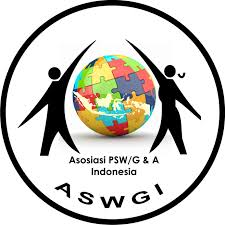Publication Ethics
Gender Equality and Social Inclusion (GESI) Journal is a scholarly journal that publishes research articles, theoretical studies, and field practices focusing on issues of gender equality, women's empowerment, and social inclusion across various social, cultural, economic, and political contexts. The journal is managed by an editorial team consisting of an Editor-in-Chief, Managing Editor, and editorial board members and reviewers who are academics, researchers, and practitioners with expertise in gender and social inclusion. GESI aims to serve as a progressive academic platform to support fair, equitable, and inclusive development through high-quality and ethical scholarly publications.
This statement of publication ethics is based on Regulation of the Head of LIPI (Indonesian Institute of Sciences) No. 5 of 2014 concerning the Code of Ethics for Scholarly Publications. Scholarly publication ethics uphold three ethical values in publication:
- Neutrality: Freedom from conflicts of interest in publication management.
- Fairness: Granting authorship rights to those entitled as authors.
- Honesty: Freedom from duplication, fabrication, falsification, and plagiarism (DF2P) in publications.
Roles and Responsibilities of GESI Journal Management
- Determine the journal's name, scope, publication schedule, and accreditation if required.
- Appoint editorial board members.
- Establish agreements between the publisher, editors, reviewers, and other parties.
- Maintain confidentiality for contributors, authors, editors, and reviewers.
- Enforce intellectual property norms and regulations, particularly copyright.
- Review journal policies and communicate them to authors, editorial boards, reviewers, and readers.
- Develop guidelines and ethical codes of conduct for editors and reviewers.
- Publish the journal regularly.
- Ensure funding availability for the journal's sustainability.
- Build collaborations with research institutions and related agencies.
- Prepare permits and other legal aspects.
Roles and Responsibilities of GESI Journal Editors
- Meet the needs of readers and authors while continuously improving publication quality.
- Implement processes to ensure the quality of published works.
- Promote objective freedom of opinion.
- Uphold the academic integrity of authors' track records.
- Provide corrections, clarifications, or apologies when necessary.
- Be responsible for the style and format of scholarly writing, while the content and statements remain the authors' responsibility.
- Actively seek feedback from authors, readers, reviewers, and editorial board members to enhance publication quality.
- Conduct periodic internal evaluations of the journal's quality.
- Support authors' initiatives regarding publication ethics by including an ethics statement form with every manuscript submission.
- Remain open to new perspectives, even those conflicting with personal views, for the advancement of science.
- Avoid subjective decision-making by refraining from favoring personal opinions, authors, or third parties, and seek scientifically accountable solutions.
- Encourage authors to revise their work until it meets publication standards.
Roles and Responsibilities of GESI Journal Reviewers
- Review manuscripts and provide feedback to editors as a basis for determining publication suitability.
- Refrain from reviewing manuscripts involving themselves, directly or indirectly.
- Provide constructive suggestions, input, and recommendations for scholarly manuscripts.
- Maintain author confidentiality by not disseminating corrections, suggestions, or recommendations regarding a manuscript.
- Encourage authors to improve their manuscripts.
- Re-review revised manuscripts to ensure they meet established standards.
- Conduct reviews promptly in accordance with applicable publication styles and scholarly guidelines (data collection methods, author validity, conclusions, etc.).
Roles and Responsibilities of GESI Journal Authors
- Ensure that listed authors meet authorship criteria.
- Take collective responsibility for the work and content of the article, including methods, analysis, calculations, and other details.
- Disclose all resources used (including funding), directly or indirectly.
- Explain research limitations.
- Respond professionally, scientifically, and promptly to reviewer and editorial board comments.
- Notify the editor in writing if they wish to withdraw their manuscript.
- Declare that the submitted manuscript is original, has not been published elsewhere in any language, and is not under review by another publisher.






